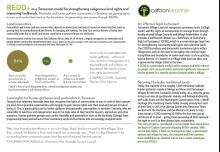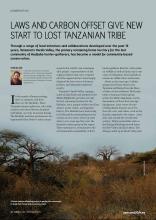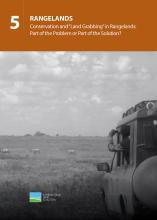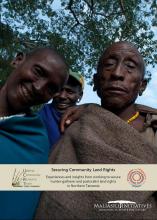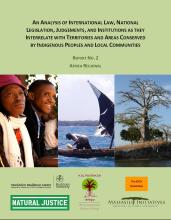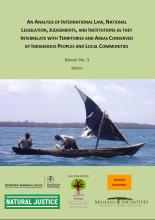Land Library
Welcome to the Land Portal Library. Explore our vast collection of open-access resources (over 74,000) including reports, journal articles, research papers, peer-reviewed publications, legal documents, videos and much more.
/ library resources
Showing items 1 through 8 of 8.This article explores the connection between Smart Growth and the decolonization of urban growth management in Egypt examining the impact of former colonial influence on present urban policy and practices Drawing insights from the urbanization of Egyptian desert areas before and after the New Urb
This study investigates how urban parks can contribute to helping cities become more sustainable through developing a set of criteria for the sustainable design of urban parks Today there is no example around the world where all the proposed sustainable design criteria are applied together in a s
Pastoralist and hunter-gatherer communities in Tanzania are gaining rights to own and control their land as the foundation for generating new income through REDD+
Through a range of local initiatives and collaborations developed over the past 15 years, Tanzania’s Yaeda Valley, the primary remaining home territory for the last community of Hadzabe hunter-gatherers, has become a model for community-based conservation.
Large-scale land acquisitions have increased in scale and pace due to changes in commodity markets, agricultural investment strategies, land prices, and a range of other policy and market forces.
In this publication two pioneering grassroots organisations from northern Tanzania examine and present their experiences and insights from their long-term work to secure the land rights of hunter-gatherer and pastoral communities.
This report provides a synthesis of three country level case studies (Namibia, Senegal, Kenya) carried out in African countries as a part of the overall legal review of Indigenous People’s and Community Conserved Territories and Areas (ICCAs).
Across the world, areas with high or important biodiversity are often located within Indigenous peoples’ and local communities’ conserved territories and areas (ICCAs).


